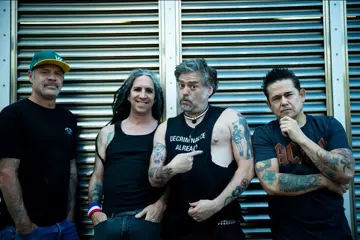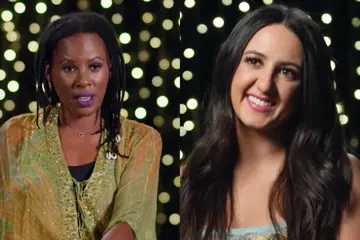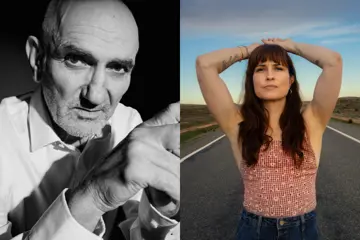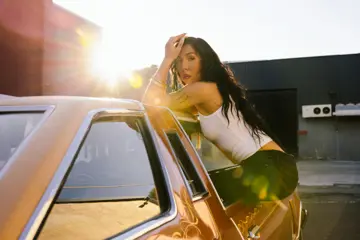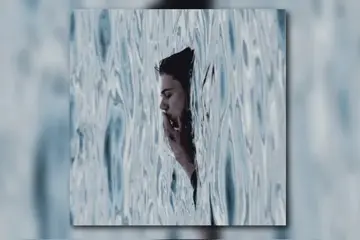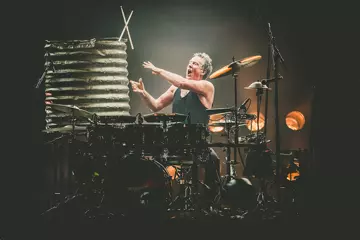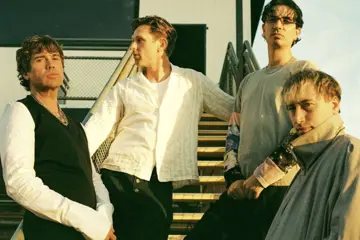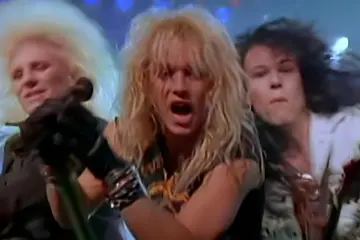 Tune-Yards
Tune-YardsTune-Yards isn't necessarily an easy proposition, a musical act that revels in both familiar beats and compositions, however colourfully deconstructed, all driven by energetic percussion and a powerful yet acrobatic voice, all from the diminutive yet exuberant frame of Merrill Garbus. Take 2011's whokill, for example, a second release that shirks the lo-fi, vocal-looped idiosyncrasies of her debut record, Bird-Brains, for a more flamboyant yet chaotic approach, mashing together genres with a freer, more fervent sense of experimentation. Garbus herself was moving from New England to California whilst dealing with the rising acceptance of her musical endeavours with a growing sense of pride yet wanting to push things as far as they could conceivably go. Nikki Nack finds Garbus much more in tune with what Tune-Yards is, and whilst many of the tropes she's employed previously have become cemented in these new tracks' DNA; there's a sing-song simplicity here, a childlike sense of maniacal glee that foreshadows Garbus' confidence. “The challenge for a musician is that you don't have all that much perspective on anything until you have the opportunity to get out from under the loud and painful and mysterious place that your own headspace can be,” Garbus laughs. “I'm glad it came out with a playful tone because I wanted to write pop songs and danceable songs, songs that felt lovely to create but then carried with them a whole lot of new challenges.”
One such challenge was utilising hip hop beats in many of the tracks. Garbus had to wrestle with the notion of giving up some autonomy in creating the album to get the desired sound she wanted, with producers Malay (Frank Ocean, Alicia Keys, Big Boi) and John Hill (Rihanna, Shakira, M.I.A.) coming into the frame. Garbus is quick to assert that nothing was compromised, only augmented by the experience, as these producers themselves seem to be interested in music that takes something and deconstructs it before putting it back together in an iconic way. “Inviting strangers into my world to be a part of the musical process was really challenging for me, but it ended up being a very comfortable experience. Me and Nate (Brenner) both have a history of listening to hip hop and that being the music we were interested in growing up, so if we were going to let people become a part of what we do, it would be leaning towards that than, say, a psychedelic rock approach. I will speak for myself when I wanted my love (for hip hop) to show. Having two producers was scary but they brought different experiences and approaches from their standpoint of R&B and reggae; they have brought out some of the loudest soul influences in albums of the last decade. There were things that we simply would not have considered, but they in turn considered us and what we wanted to do.
“Both of us still found ourselves thinking why do we need anyone, we've done it all on our own thus far. We are both essentially trying to make a living producing music; Nate produces other people's music as it is. I've been a producer on Tune-Yards too, and I want to be loud about being a woman producer because you don't hear much about women being a part of that particular process. Many women are producing their own and other people's music, and I have always wanted to be open and proud that I was one of those people. I cling on to my producer role and I still have that; only five or six songs were truly co-produced by (Hill and Malay). But I think we have moved on from that possessiveness of an album to the point that we just want it to be the most awesome thing that we can make, and they helped us achieve that. We are teaching ourselves, and we are gonna take our lessons where we can get them.”


